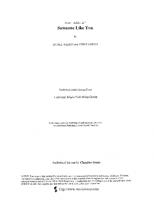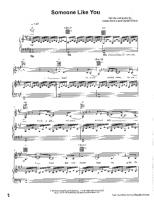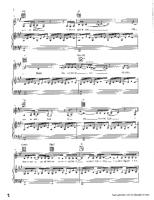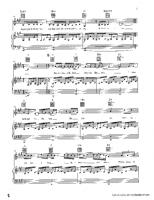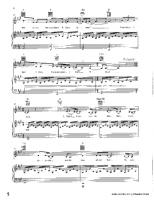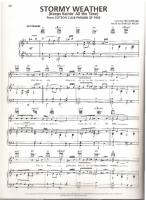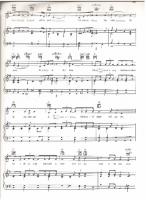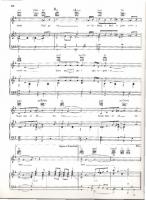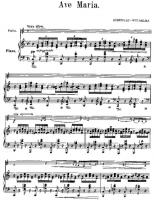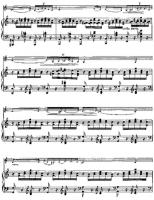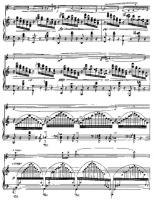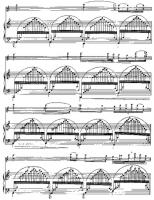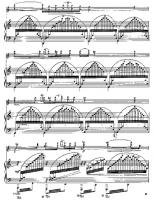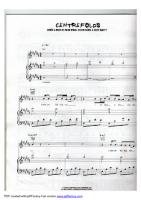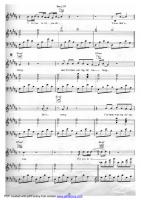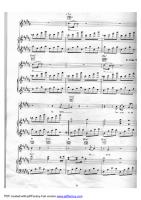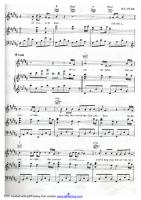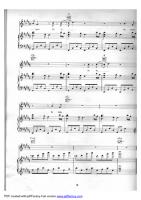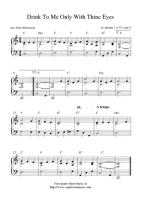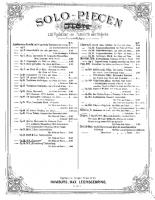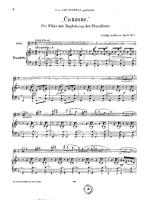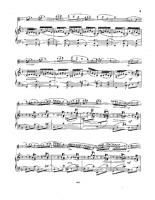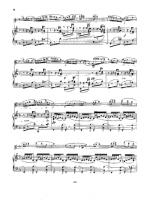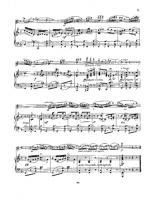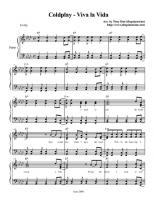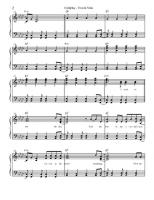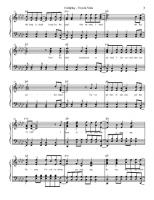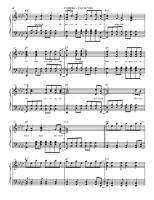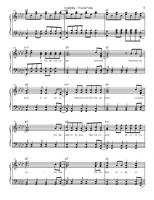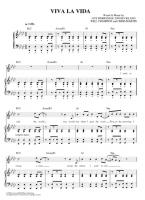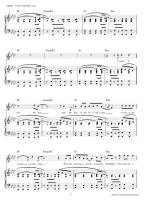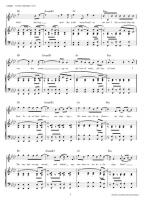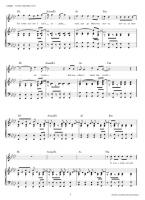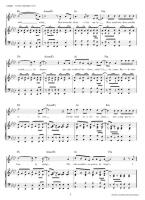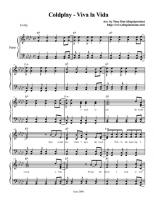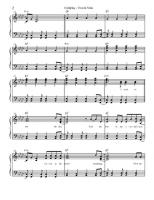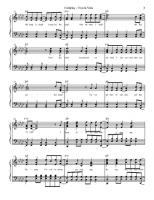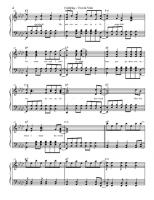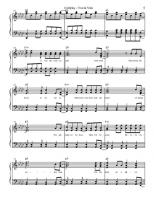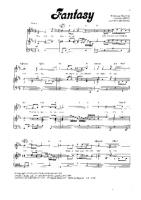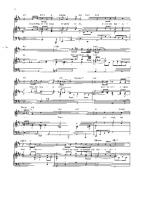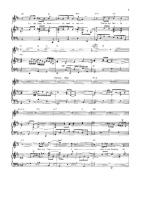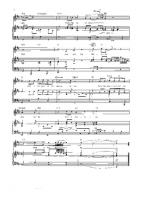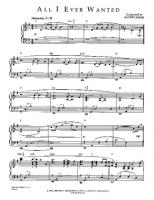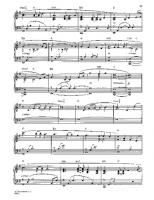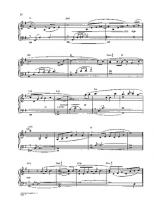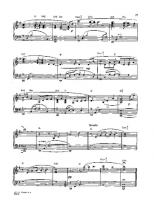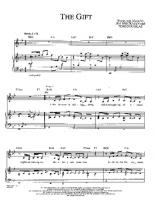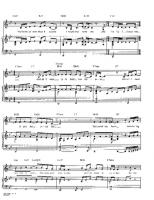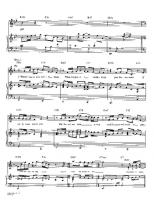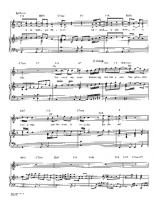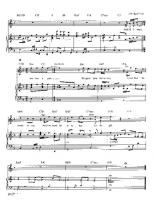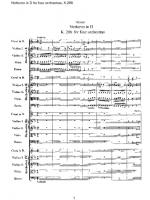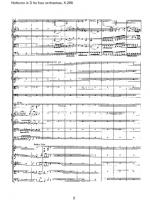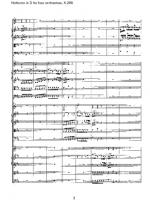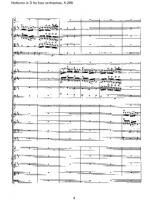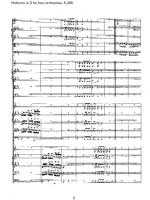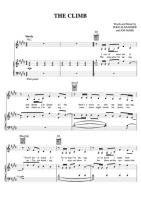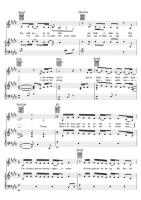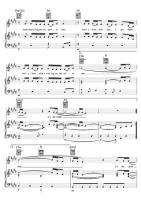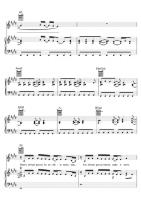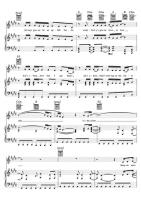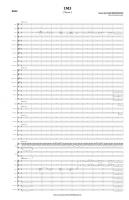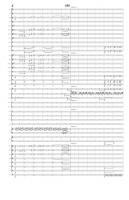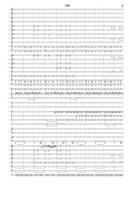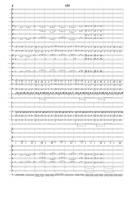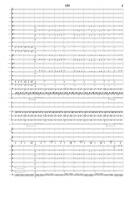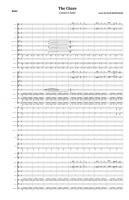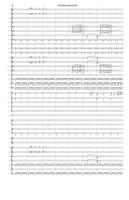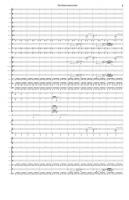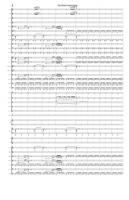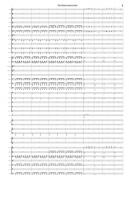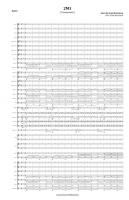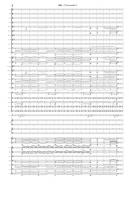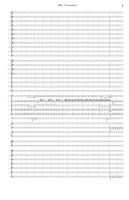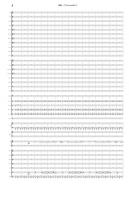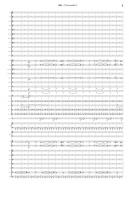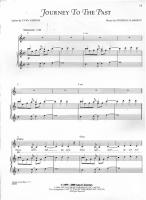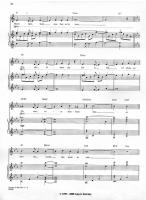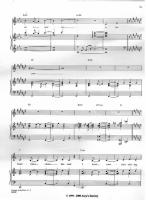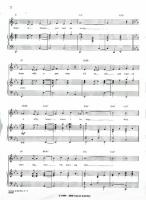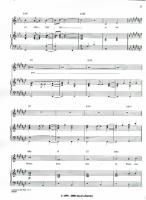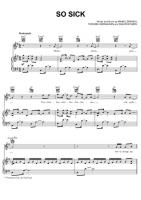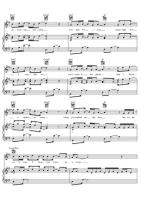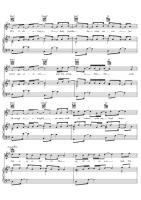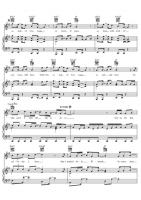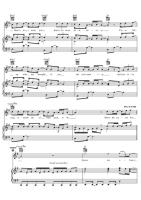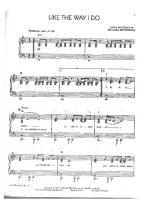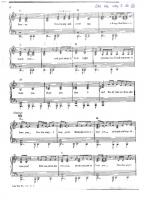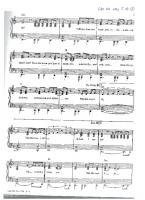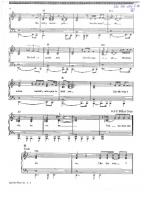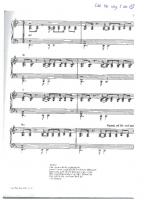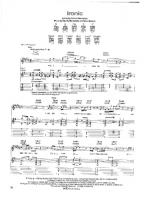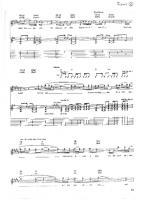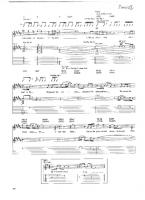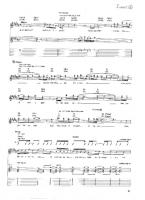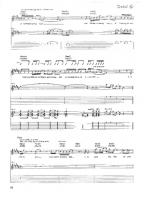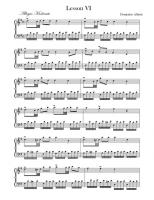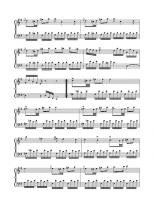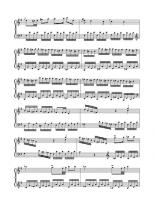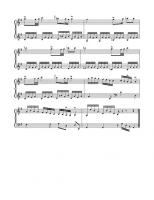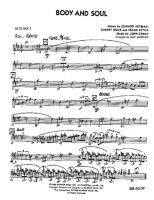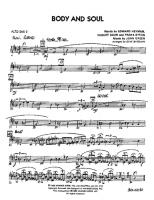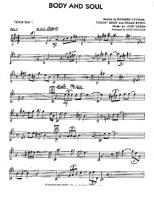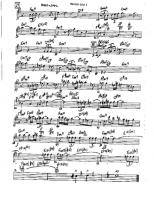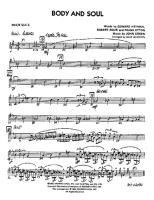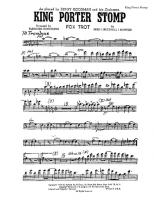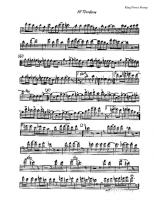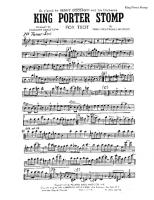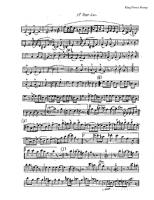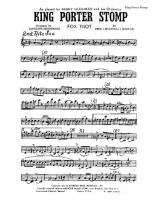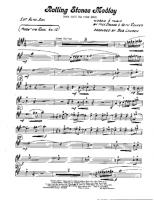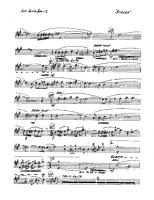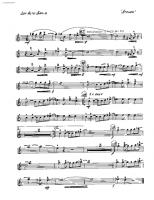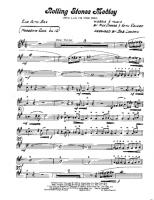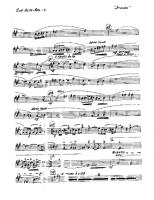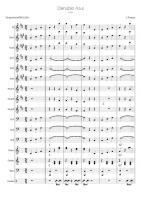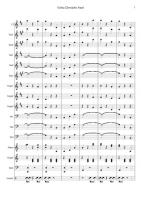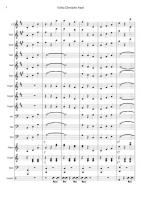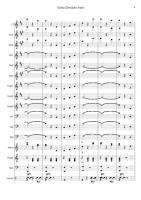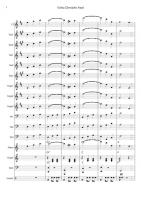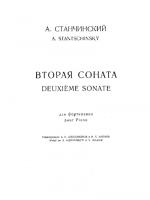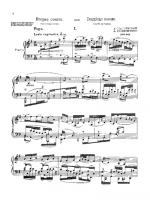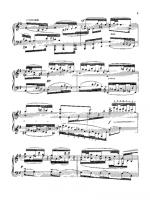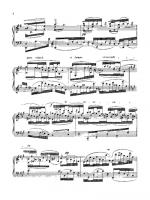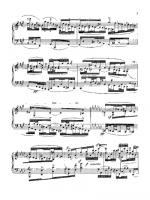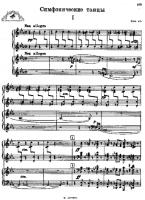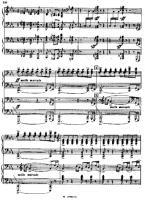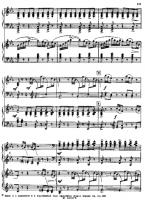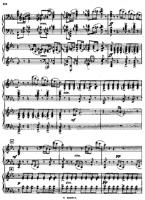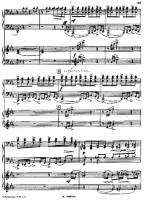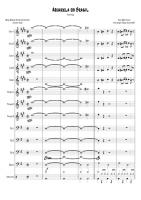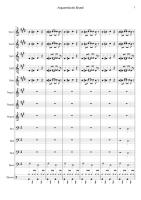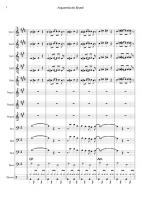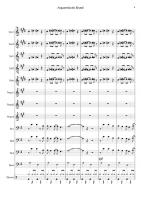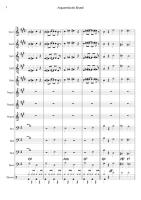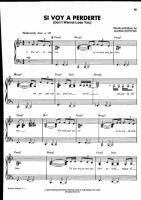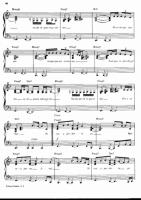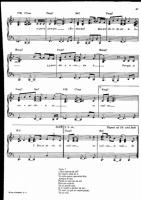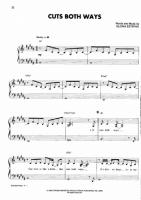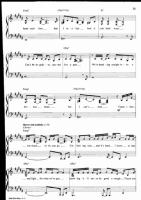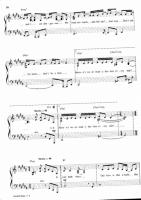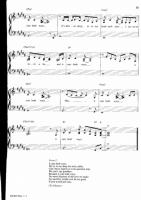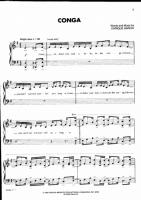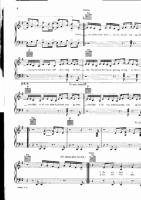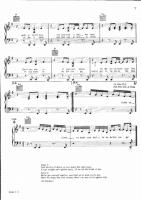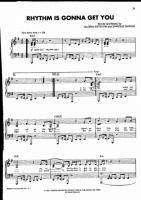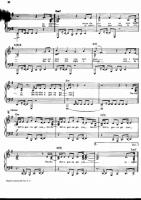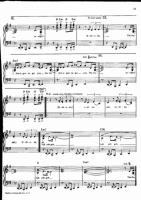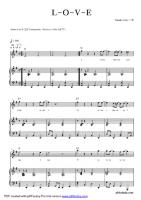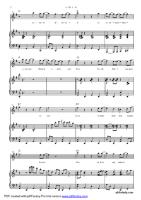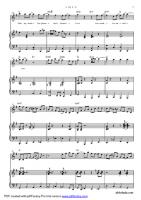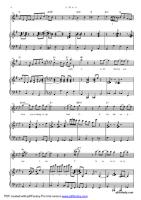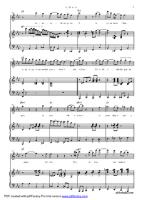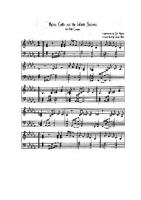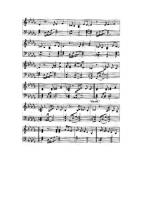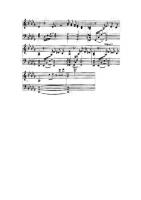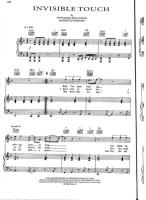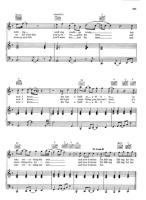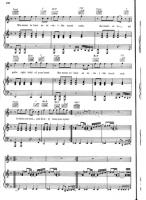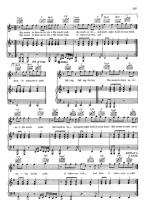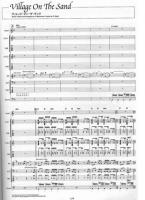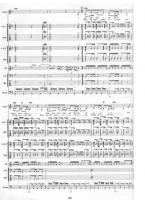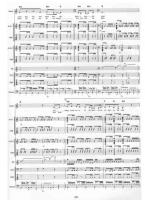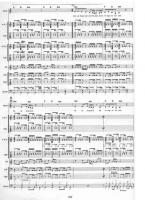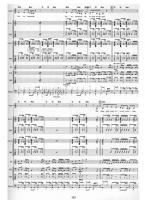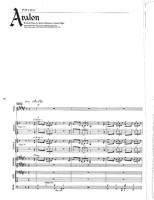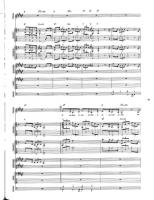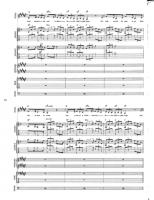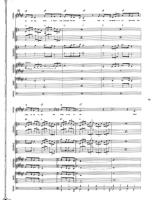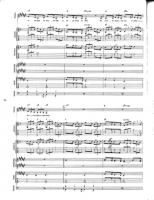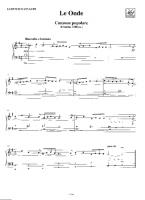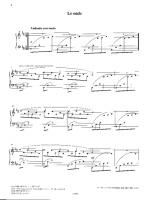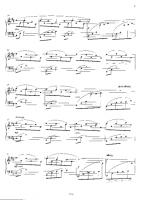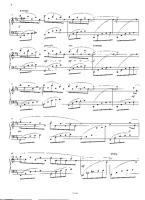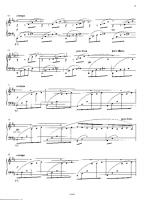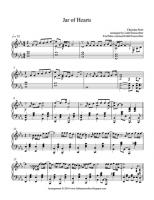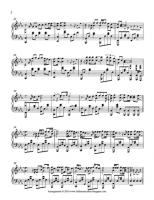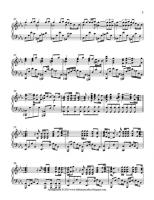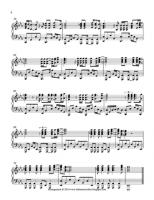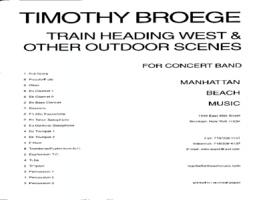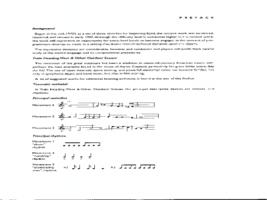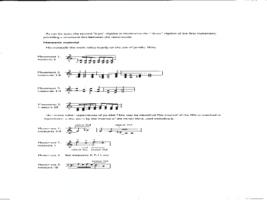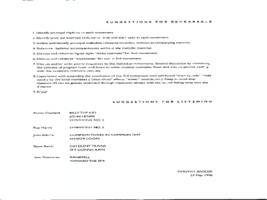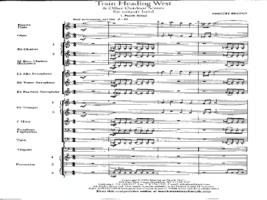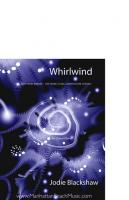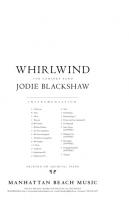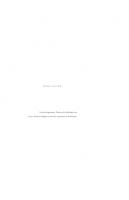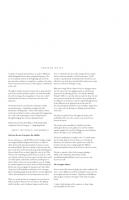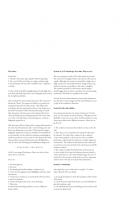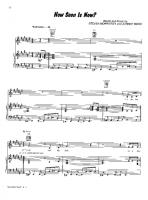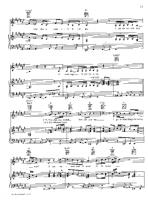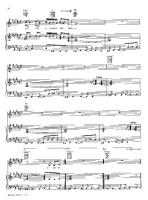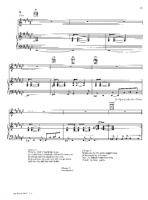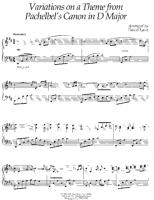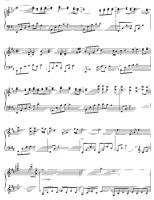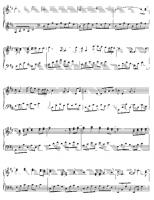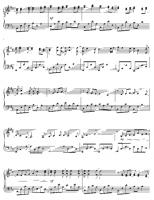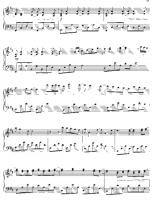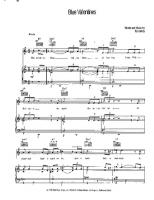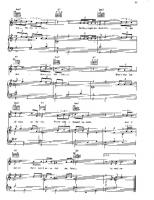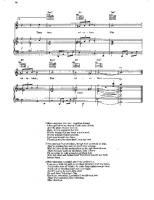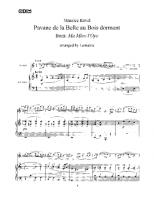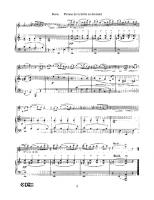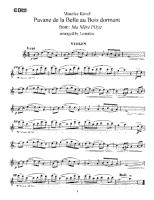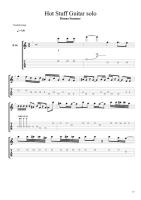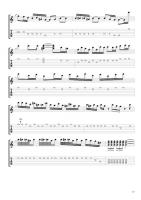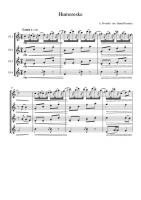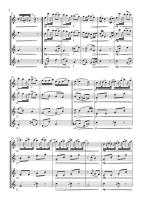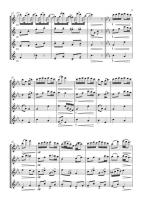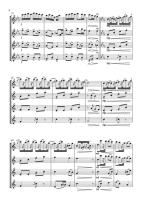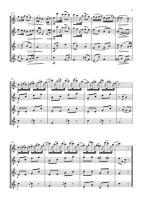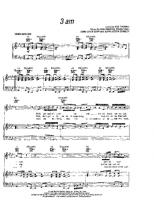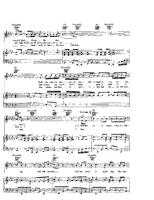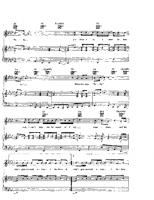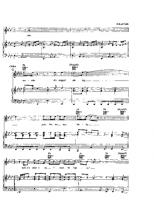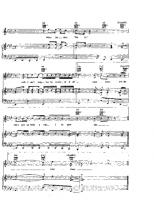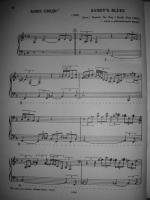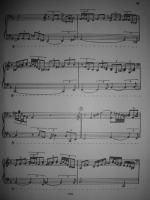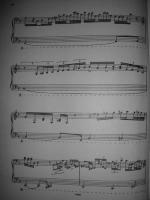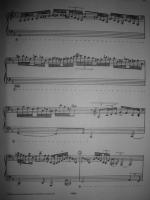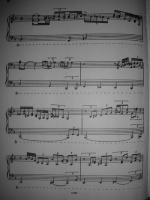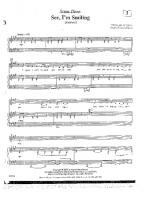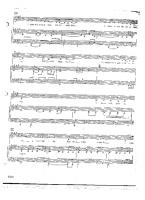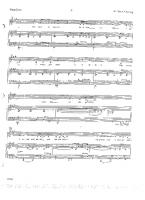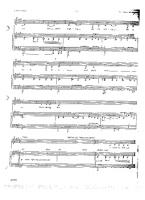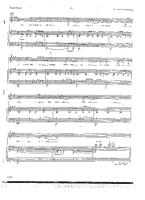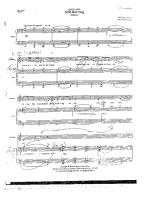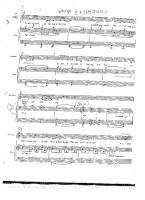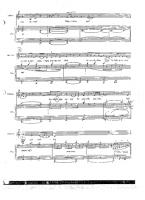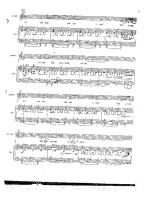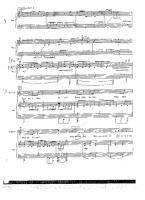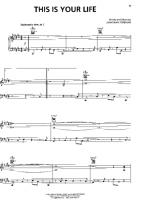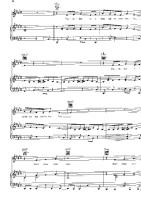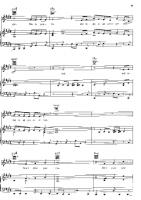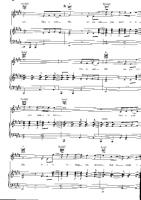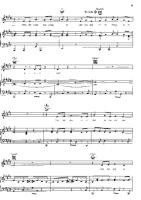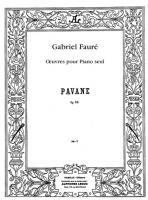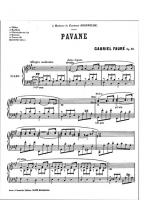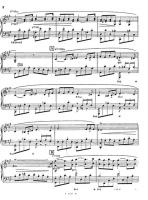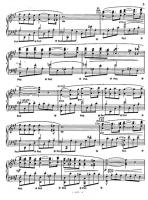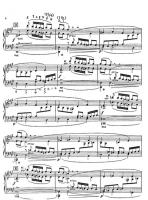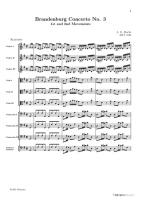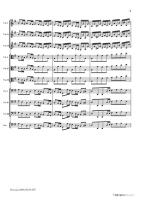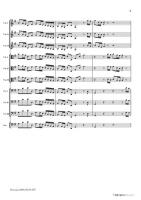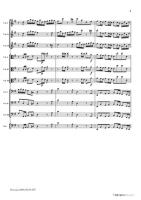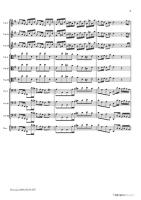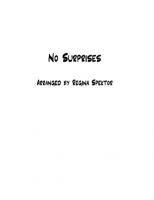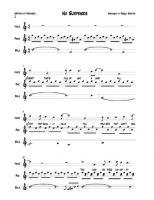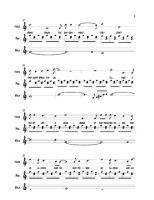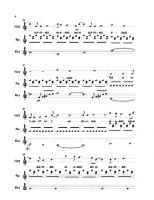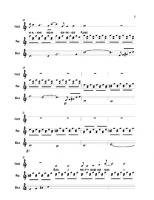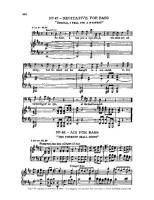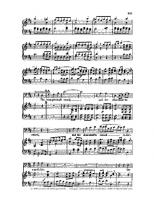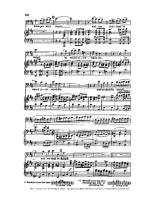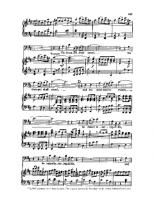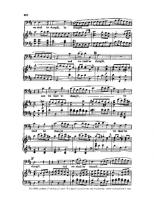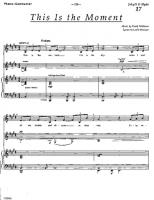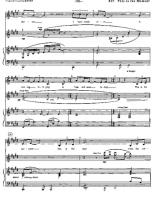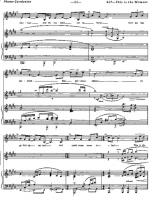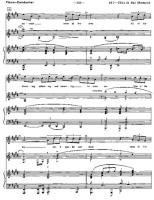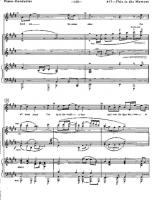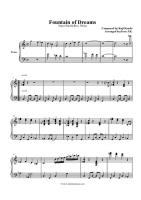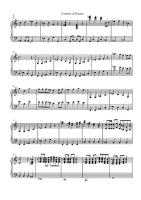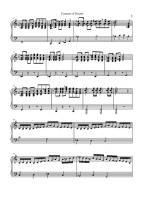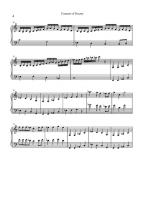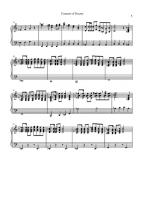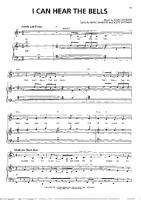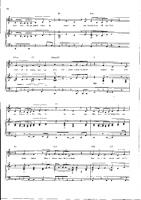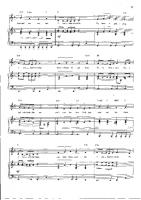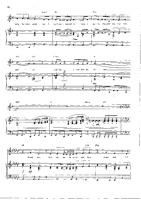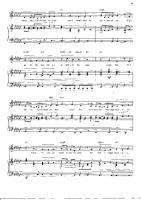Latest Sheets
Adele
Adele Laurie Blue Adkins (born 5 May 1988 in Enfield, North London), She is the first recipient of the Brit Awards Critics' Choice, which was given to artists who, at the time, had yet to release an album. She debuted at number one with her Mercury Prize nominated debut album 19 in the UK album chart and has since then been certified platinum with sales over 500,000 copies.
Lena Horne
Schubert
Franz Peter Schubert (January 31, 1797 – November 19, 1828) was an Austrian composer. He wrote some 600 lieder, nine symphonies (including the famous "Unfinished Symphony"), liturgical music, operas, and a large body of chamber and solo piano music. He is particularly noted for his original melodic and harmonic writing.
While Schubert had a close circle of friends and associates who admired his work (including his teacher Antonio Salieri, and the prominent singer Johann Michael Vogl), wider appreciation of his music during his lifetime was limited at best. He was never able to secure adequate permanent employment, and for most of his career he relied on the support of friends and family. Interest in Schubert's work increased dramatically in the decades following his death and he is now widely considered to be one of the greatest composers in the Western tradition.
While he was clearly influenced by the Classical sonata forms of Beethoven and Mozart (his early works, among them notably the 5th Symphony, are particularly Mozartean), his formal structures and his developments tend to give the impression more of melodic development than of harmonic drama. This combination of Classical form and long-breathed Romantic melody sometimes lends them a discursive style: his 9th Symphony was described by Robert Schumann as running to "heavenly lengths". His harmonic innovations include movements in which the first section ends in the key of the subdominant rather than the dominant (as in the last movement of the Trout Quintet). Schubert's practice here was a forerunner of the common Romantic technique of relaxing, rather than raising, tension in the middle of a movement, with final resolution postponed to the very end.
While Schubert had a close circle of friends and associates who admired his work (including his teacher Antonio Salieri, and the prominent singer Johann Michael Vogl), wider appreciation of his music during his lifetime was limited at best. He was never able to secure adequate permanent employment, and for most of his career he relied on the support of friends and family. Interest in Schubert's work increased dramatically in the decades following his death and he is now widely considered to be one of the greatest composers in the Western tradition.
While he was clearly influenced by the Classical sonata forms of Beethoven and Mozart (his early works, among them notably the 5th Symphony, are particularly Mozartean), his formal structures and his developments tend to give the impression more of melodic development than of harmonic drama. This combination of Classical form and long-breathed Romantic melody sometimes lends them a discursive style: his 9th Symphony was described by Robert Schumann as running to "heavenly lengths". His harmonic innovations include movements in which the first section ends in the key of the subdominant rather than the dominant (as in the last movement of the Trout Quintet). Schubert's practice here was a forerunner of the common Romantic technique of relaxing, rather than raising, tension in the middle of a movement, with final resolution postponed to the very end.
Placebo
Placebo are a British alternative rock band from London, England, formed in 1994 by singer and guitarist Brian Molko and bass guitarist Stefan Olsdal. The band was joined by drummer Robert Schultzberg, who was later replaced by Steve Hewitt after conflicts with Molko. Hewitt left the band in October 2007 and was replaced by Steve Forrest in 2008. To date, they have released six studio albums, six EPs, and twenty-nine singles and have sold over ten million records worldwide.
Since their formation, the band have attracted popularity and notoriety in equal measures for their subversive musical content and androgynous image. Their style has progressed since their first album, which featured raw guitar riffs and a fairly minimalistic line-up, with following albums featuring a more diverse and polished sound, including experimentation with synthesizers and other less traditional forms of sound production.
Since their formation, the band have attracted popularity and notoriety in equal measures for their subversive musical content and androgynous image. Their style has progressed since their first album, which featured raw guitar riffs and a fairly minimalistic line-up, with following albums featuring a more diverse and polished sound, including experimentation with synthesizers and other less traditional forms of sound production.
Traditional
traditional music
Joachim Andersen
Carl Joachim Andersen (April 29, 1847 – May 7, 1909) was a Danish flutist, conductor and composer born in Copenhagen, son of the flutist Christian Joachim Andersen. Both as a virtuoso and as composer of flute music, he is considered one of the best of his time. He was a tough leader and teacher and demanded as such a lot from his orchestras but through that style he reached a high level.
Coldplay
Coldplay are a rock band formed in London, England in 1997. The group comprises vocalist/pianist/guitarist Chris Martin, lead guitarist Jonny Buckland, bassist Guy Berryman, and drummer/multi-instrumentalist Will Champion. Coldplay have sold 34.6 million albums, and are also known for their hit singles, such as "Yellow", "The Scientist", "Speed of Sound", "Fix You", "Viva la Vida" and the Grammy Award-winning "Clocks".
Coldplay achieved worldwide fame with the release of their single "Yellow", followed by their debut album, Parachutes (2000), which was nominated for the Mercury Prize. Its follow-up, A Rush of Blood to the Head (2002) won multiple awards such as NME's Album of the Year and was later included on Rolling Stone magazine's 500 Greatest Albums of All Time list, ranking at #473. Their next release, X&Y (2005), received a slightly less enthusiastic yet still generally positive reception. The band's fourth studio album, Viva la Vida or Death and All His Friends (2008), was produced by Brian Eno and released again to largely favourable reviews. All of Coldplay's albums have enjoyed great commercial success.
Coldplay's early material was compared to acts such as Jeff Buckley, U2, and Travis. Coldplay have been an active supporter of various social and political causes, such as Oxfam's Make Trade Fair campaign and Amnesty International. The group have also performed at various charity projects such as Band Aid 20, Live 8, and the Teenage Cancer Trust.
Coldplay achieved worldwide fame with the release of their single "Yellow", followed by their debut album, Parachutes (2000), which was nominated for the Mercury Prize. Its follow-up, A Rush of Blood to the Head (2002) won multiple awards such as NME's Album of the Year and was later included on Rolling Stone magazine's 500 Greatest Albums of All Time list, ranking at #473. Their next release, X&Y (2005), received a slightly less enthusiastic yet still generally positive reception. The band's fourth studio album, Viva la Vida or Death and All His Friends (2008), was produced by Brian Eno and released again to largely favourable reviews. All of Coldplay's albums have enjoyed great commercial success.
Coldplay's early material was compared to acts such as Jeff Buckley, U2, and Travis. Coldplay have been an active supporter of various social and political causes, such as Oxfam's Make Trade Fair campaign and Amnesty International. The group have also performed at various charity projects such as Band Aid 20, Live 8, and the Teenage Cancer Trust.
Gerard Kenny
Gerard Kenny (born Gerard W. Kenny, 8 July 1947, New York) is a popular music singer-songwriter.
Jim Brickman
Jim Brickman (born November 20, 1961) is an American composer and pianist. Brickman is known for his solo piano compositions, which are classified as new age music. However, he is as well known for his original love songs and performing them with vocalists such as Martina McBride, Michael W. Smith, Michelle Wright and others.
His music career started when he was nineteen, when Jim Henson hired him to write tunes for Sesame Street. He was also hired to write commercial jingles while in college.
Brickman signed with Windham Hill Records to release his first album, No Words, in 1994. The song "Rocket To The Moon" from that album was the first solo instrumental song ever to be ranked on Billboard's charts. Four of his albums (By Heart, Picture This, The Gift, and Destiny) have all sold over 500,000 copies, qualifying them as gold records in the United States.
Brickman writes a wide variety of music. Besides his piano compositions and love songs, he has also created arrangements of other songs. Several of his albums feature arrangements of children's music; he has produced two Christmas-themed albums The Gift (1997) and Peace (2003); and his 2005 album Grace concentrates on arrangements of well-known Christian music.
His music career started when he was nineteen, when Jim Henson hired him to write tunes for Sesame Street. He was also hired to write commercial jingles while in college.
Brickman signed with Windham Hill Records to release his first album, No Words, in 1994. The song "Rocket To The Moon" from that album was the first solo instrumental song ever to be ranked on Billboard's charts. Four of his albums (By Heart, Picture This, The Gift, and Destiny) have all sold over 500,000 copies, qualifying them as gold records in the United States.
Brickman writes a wide variety of music. Besides his piano compositions and love songs, he has also created arrangements of other songs. Several of his albums feature arrangements of children's music; he has produced two Christmas-themed albums The Gift (1997) and Peace (2003); and his 2005 album Grace concentrates on arrangements of well-known Christian music.
Mozart
Wolfgang Amadeus Mozart, full name Johann Chrysostom Wolfgang Amadeus Mozart (27 January 1756 â 5 December 1791) was a prolific and influential composer of the Classical era. His over 600 compositions include works widely acknowledged as pinnacles of symphonic, concertante, chamber, piano, operatic, and choral music. Mozart is among the most enduringly popular of classical composers, and many of his works are part of the standard concert repertoire.
Mozart's music, like Haydn's, stands as an archetypal example of the Classical style. His works spanned the period during which that style transformed from one exemplified by the style galant to one that began to incorporate some of the contrapuntal complexities of the late Baroque, complexities against which the galant style had been a reaction. Mozart's own stylistic development closely paralleled the development of the classical style as a whole. In addition, he was a versatile composer and wrote in almost every major genre, including symphony, opera, the solo concerto, chamber music including string quartet and string quintet, and the piano sonata. While none of these genres were new, the piano concerto was almost single-handedly developed and popularized by Mozart. He also wrote a great deal of religious music, including masses; and he composed many dances, divertimenti, serenades, and other forms of light entertainment.
The central traits of the classical style can be identified in Mozart's music. Clarity, balance, and transparency are hallmarks of his work.
Mozart's music, like Haydn's, stands as an archetypal example of the Classical style. His works spanned the period during which that style transformed from one exemplified by the style galant to one that began to incorporate some of the contrapuntal complexities of the late Baroque, complexities against which the galant style had been a reaction. Mozart's own stylistic development closely paralleled the development of the classical style as a whole. In addition, he was a versatile composer and wrote in almost every major genre, including symphony, opera, the solo concerto, chamber music including string quartet and string quintet, and the piano sonata. While none of these genres were new, the piano concerto was almost single-handedly developed and popularized by Mozart. He also wrote a great deal of religious music, including masses; and he composed many dances, divertimenti, serenades, and other forms of light entertainment.
The central traits of the classical style can be identified in Mozart's music. Clarity, balance, and transparency are hallmarks of his work.
Miley Cyrus
Miley Ray Cyrus (born Destiny Hope Cyrus; November 23, 1992) is an American pop singer and television and film actress. Cyrus is best known for starring as the title character in the Disney Channel series Hannah Montana. Following the success of Hannah Montana, in October 2006, a soundtrack CD was released in which she sang eight songs from the show. Cyrus' solo music career began with the release of her debut album, Meet Miley Cyrus on June 23, 2007, which included her first top ten single "See You Again". Her second album, Breakout, was released on July 22, 2008. Breakout is Cyrus' first album that does not involve the Hannah Montana franchise. Both albums debuted at #1 on the Billboard 200. In 2008, she appeared in the Hannah Montana & Miley Cyrus: Best of Both Worlds Concert film.
Cyrus also starred in Bolt in 2008, and recorded "I Thought I Lost You" for the soundtrack for which she earned a Golden Globe nomination. She starred in the film spin-off of Hannah Montana, titled Hannah Montana: The Movie which was released on April 10, 2009. In 2008, Cyrus was listed in Time magazine's 100 Most Influential People in The World. Forbes magazine ranked her #35 on the "Celebrity 100" list with earnings of $25 million in 2008. Her rank improved to #29 in 2009.
Cyrus also starred in Bolt in 2008, and recorded "I Thought I Lost You" for the soundtrack for which she earned a Golden Globe nomination. She starred in the film spin-off of Hannah Montana, titled Hannah Montana: The Movie which was released on April 10, 2009. In 2008, Cyrus was listed in Time magazine's 100 Most Influential People in The World. Forbes magazine ranked her #35 on the "Celebrity 100" list with earnings of $25 million in 2008. Her rank improved to #29 in 2009.
Sean Mortensen
I'm an aspiring composer, well-to-do pianist and percussionist. I'm even bilingual in Spanish, Italian and Portuguese (I'm almost a Jack of All Trades).
Stephen Flaherty
Stephen Flaherty (born September 18, 1960) is an American composer of musical theatre. He works most often in collaboration with the lyricist/bookwriter Lynn Ahrens. They are best known for writing the Broadway shows Once on This Island, which was nominated for eight Tony Awards, Seussical , which was nominated for the Grammy Award and Ragtime, which was nominated for twelve Tony Awards and won Best Original Score. Flaherty was also nominated for two Academy Awards and two Golden Globe Awards with Lynn Ahrens for his songs and song score for the animated film musical Anastasia.
Ne- Yo
Shaffer Chimere Smith, Jr. (born October 18, 1979), better known by his stage name Ne-Yo, is an American pop and R&B singer-songwriter, record producer, and actor. Since his debut, Ne-Yo has had five top ten songs on the Billboard Hot 100 as a lead artist and two number-one albums on the Billboard 200. Ne-Yo has also amassed a catalog of chart-topping songs that he has written for other artists.
Ne-Yo broke into the recording industry as a songwriter, penning the hit "Let Me Love You" for singer Mario. The single's successful release in the United States prompted an informal meeting between Ne-Yo and Def Jam's label head, and signing a recording contract.
Ne-Yo broke into the recording industry as a songwriter, penning the hit "Let Me Love You" for singer Mario. The single's successful release in the United States prompted an informal meeting between Ne-Yo and Def Jam's label head, and signing a recording contract.
Melissa Etheridge
Melissa Lou Etheridge (born May 29, 1961) is an American rock singer-songwriter and musician. She has received fifteen Grammy Award nominations winning two, one Academy Award and has sold twenty-seven million albums worldwide and almost fourteen million in the United States alone.
Etheridge is known for her mixture of confessional lyrics, pop-based folk-rock, and raspy, smoky vocals. She has also been an iconic gay and lesbian activist since her public coming out in January 1993.
Etheridge is known for her mixture of confessional lyrics, pop-based folk-rock, and raspy, smoky vocals. She has also been an iconic gay and lesbian activist since her public coming out in January 1993.
Alanis Morissette
Alanis Nadine Morissette (born June 1, 1974) is a Canadian-born singer-songwriter, record producer, and actress. She has won 12 Juno Awards and seven Grammy Awards, and has sold over 55 million albums worldwide. Morissette began her career in Canada, and as a teenager recorded two dance-pop albums, Alanis and Now Is the Time, under MCA Records. Her international debut album was the rock-influenced Jagged Little Pill, which remains the best-selling debut album by a female artist in the U.S., and the highest selling debut album worldwide in music history, selling 30 million records worlwide. According to RIAA and United World Charts, Alanis is the biggest selling female rock artist in music. Her following album, Supposed Former Infatuation Junkie, was released in 1998 and was a success as well. Morissette took up producing duties for her subsequent albums, which include Under Rug Swept, So-Called Chaos and latest release Flavors of Entanglement. In February 2005, Morissette became a naturalized citizen of the United States while maintaining her Canadian citizenship.
Domenico Alberti
Domenico Alberti (c. 1710 – 14 October 1740) was an Italian singer, harpsichordist, and composer whose works bridge the Baroque and Classical periods.
Alberti was born in Venice and studied music with Antonio Lotti. He wrote operas, songs, and sonatas for keyboard instruments, for which he is best known today. These sonatas frequently employ a particular kind of arpeggiated accompaniment in the left hand that is now known as the Alberti bass. It consists of regular broken chords, with the lowest note sounding first, then the highest, then the middle and then the highest again. This pattern is repeated. Today, Alberti is regarded as a minor composer, and his works are played or recorded only irregularly. The Alberti bass was used by many later composers, and it became an important element in much keyboard music of the Classical music era.
Alberti was born in Venice and studied music with Antonio Lotti. He wrote operas, songs, and sonatas for keyboard instruments, for which he is best known today. These sonatas frequently employ a particular kind of arpeggiated accompaniment in the left hand that is now known as the Alberti bass. It consists of regular broken chords, with the lowest note sounding first, then the highest, then the middle and then the highest again. This pattern is repeated. Today, Alberti is regarded as a minor composer, and his works are played or recorded only irregularly. The Alberti bass was used by many later composers, and it became an important element in much keyboard music of the Classical music era.
Johnny Green
Johnny Green (10 October 1908 – 15 May 1989) was an American songwriter, composer, musical arranger, and conductor. He was given the nickname "Beulah" by colleague Conrad Salinger. His most famous song was one of his earliest, "Body and Soul". Green was inducted into the Songwriters Hall of Fame in 1972.
Fletcher Henderson
James Fletcher Hamilton Henderson, Jr. (December 18, 1897 – December 28, 1952) was an American pianist, bandleader, arranger and composer, important in the development of big band jazz and swing music. His was one of the most prolific black orchestras and his influence was vast. He was often known as "Smack" Henderson (apparently named due to his college baseball hitting skills).
Bob Lowden
Johann Strauss
Johann Strauss I (March 14, 1804 – September 25, 1849; German: Johann Baptist Strauß, Johann Strauss (Vater); also Johann Baptist Strauss, Johann Strauss, Sr., the Elder, the Father), born in Vienna, was an Austrian Romantic composer famous for his waltzes, and for popularizing them alongside Joseph Lanner, thereby setting the foundations for his sons to carry on his musical dynasty. His most famous piece is probably the Radetzky March (named after Joseph Radetzky von Radetz), while his most famous waltz is probably the Lorelei Rheinklänge, Op. 154.
Anatoly Alexandrov
Anatoly Nikolayevich Alexandrov (Russian: Анато́лий Никола́евич Алекса́ндров) (May 25 1888 – April 16, 1982) was a Russian composer of works for piano and for other instruments, and pianist. His initial works had a mystical element, but he downplayed this to better fit Socialist realism. He led a somewhat retiring life, but received several honors.
Alexandrov was the son of a Professor of Tomsk University. He attended the Moscow Conservatory (which he left in 1915), where he was a pupil of Nikolai Zhilyayev, Sergei Taneyev and Sergei Vasilenko (theory), Alexander Ilyinsky (composition) and Konstantin Igumnov (pianoforte). His early music revealed the influence of Nikolai Medtner and Alexander Scriabin. He was appointed Professor at the Moscow Conservatory in 1923. Viktor Belyaev, Alexandrov's first biographer, wrote in 1926: "If Myaskovsky is a thinker, and Feinberg a psychologist, then Alexandrov is, before anything else, a poet." Alexandrov was also a strong proponent of Stanchinsky and edited much of his compositions for publication.
Alexandrov was the son of a Professor of Tomsk University. He attended the Moscow Conservatory (which he left in 1915), where he was a pupil of Nikolai Zhilyayev, Sergei Taneyev and Sergei Vasilenko (theory), Alexander Ilyinsky (composition) and Konstantin Igumnov (pianoforte). His early music revealed the influence of Nikolai Medtner and Alexander Scriabin. He was appointed Professor at the Moscow Conservatory in 1923. Viktor Belyaev, Alexandrov's first biographer, wrote in 1926: "If Myaskovsky is a thinker, and Feinberg a psychologist, then Alexandrov is, before anything else, a poet." Alexandrov was also a strong proponent of Stanchinsky and edited much of his compositions for publication.
Rachmaninoff
Sergei Vasilievich Rachmaninoff (1 April 1873 - 28 March 1943) was a Russian composer, pianist, and conductor. He was one of the finest pianists of his day and, as a composer, the last great representative of Russian late Romanticism in classical music. Early influences of Tchaikovsky, Rimsky-Korsakov and other Russian composers gave way to a thoroughly personal idiom which included a pronounced lyricism, expressive breadth, structural ingenuity and a tonal palette of rich, distinctive orchestral colors.
Understandably, the piano figures prominently in Rachmaninoff's compositional output, either as a solo instrument or as part of an ensemble. He made it a point, however, to use his own skills as a performer to explore fully the expressive possibilities of the instrument. Even in his earliest works, he revealed a sure grasp of idiomatic piano writing and a striking gift for melody. In some of his early orchestral pieces he showed the first signs of a talent for tone painting, which he would perfect in The Isle of the Dead, and he began to show a similar penchant for vocal writing in two early sets of songs, Opp. 4 and 8. Rachmaninoff's masterpiece, however, is his choral symphony The Bells, in which all of his talents are fused and unified.
Rachmaninoff sometimes felt threatened by the success of modernists such as Scriabin and Prokofiev and wondered whether to cease composing even before he left Russia. His musical philosophy was rooted in the Russian spiritual tradition, where the role of the artist was to create beauty and to speak the truth from the depths of his heart. In his last major interview, in 1941, he admitted his music, like Russian music, was a product of his temperament. He said, on another occasion, "The new kind of music seems to create not from the heart but from the head. Its composers think rather than feel. They have not the capacity to make their works exalt—they meditate, protest, analyze, reason, calculate and brood, but they do not exalt."
Understandably, the piano figures prominently in Rachmaninoff's compositional output, either as a solo instrument or as part of an ensemble. He made it a point, however, to use his own skills as a performer to explore fully the expressive possibilities of the instrument. Even in his earliest works, he revealed a sure grasp of idiomatic piano writing and a striking gift for melody. In some of his early orchestral pieces he showed the first signs of a talent for tone painting, which he would perfect in The Isle of the Dead, and he began to show a similar penchant for vocal writing in two early sets of songs, Opp. 4 and 8. Rachmaninoff's masterpiece, however, is his choral symphony The Bells, in which all of his talents are fused and unified.
Rachmaninoff sometimes felt threatened by the success of modernists such as Scriabin and Prokofiev and wondered whether to cease composing even before he left Russia. His musical philosophy was rooted in the Russian spiritual tradition, where the role of the artist was to create beauty and to speak the truth from the depths of his heart. In his last major interview, in 1941, he admitted his music, like Russian music, was a product of his temperament. He said, on another occasion, "The new kind of music seems to create not from the heart but from the head. Its composers think rather than feel. They have not the capacity to make their works exalt—they meditate, protest, analyze, reason, calculate and brood, but they do not exalt."
Ary Barroso
Ary Barroso (November 7, 1903 in Ubá, Minas Gerais — February 9, 1964 in Rio de Janeiro) was a Brazilian composer, pianist, soccer commentator, and talent-show host on radio and TV. He was one of Brazil's most successful songwriters in the first half of the 20th century.
Gloria Estefan
Gloria Estefan (born Gloria María Fajardo on September 1, 1957) is a Cuban American singer and songwriter. she is in the top 100 of best selling music artists with over 90 million albums sold worldwide, with 15.5 million of those alone in the United States. She has won five Grammy Awards becoming among the most successful crossover performers in Latin music to date.
She will be awarded by the Latin Grammy Award Recording Association as the "Person of the Year" in the ceremony to be aired on November 2008, the award will be given to her for her long career of more than 20 years and her worldwide success, she's also the first female singer to receive this prestigious award.
She will be awarded by the Latin Grammy Award Recording Association as the "Person of the Year" in the ceremony to be aired on November 2008, the award will be given to her for her long career of more than 20 years and her worldwide success, she's also the first female singer to receive this prestigious award.
Natalie Cole
Natalie Maria Cole (born February 6, 1950), better known as Natalie Cole is an American singer, songwriter and performer. The daughter of jazz legend Nat King Cole, Cole rode to musical success in the mid-1970s as an R&B artist with the hits "This Will Be (An Everlasting Love)", "Inseparable" and "Our Love". After a period of failing sales and performances due to a heavy drug addiction, Cole reemerged as a pop artist with the 1987 album, Everlasting, and her cover of Bruce Springsteen's "Pink Cadillac". In the 1990s, she re-recorded standards by her father, resulting in her biggest success, Unforgettable... with Love, which sold over seven million copies and also won Cole numerous Grammy Awards.
The Smashing Pumpkins
The Smashing Pumpkins are an American alternative rock band that formed in Chicago, Illinois in 1988. While the group has gone through several lineup changes, The Smashing Pumpkins consisted of Billy Corgan (vocals/guitar), James Iha (guitar/backing vocals), D'arcy Wretzky (bass guitar/backing vocals), and Jimmy Chamberlin (drums/percussion) for most of the band's recording career.
Disavowing the punk rock roots shared by many of their alt-rock contemporaries, the Pumpkins have a diverse, densely layered, and guitar-heavy sound, containing elements of gothic rock, heavy metal, dream pop, psychedelic rock, arena rock, shoegazer-style production and, in later recordings, electronica. Frontman Billy Corgan is the group's primary songwriter—his grand musical ambitions and cathartic lyrics have shaped the band's albums and songs, which have been described as "anguished, bruised reports from Billy Corgan's nightmare-land".
The Smashing Pumpkins broke into the musical mainstream with their second album, Siamese Dream (1993). The group built their audience with extensive touring and their follow-up, the double album Mellon Collie and the Infinite Sadness (1995), debuted at number one on the Billboard charts. With approximately 18.25 million albums sold in the United States alone, The Smashing Pumpkins were one of the most commercially successful and critically acclaimed bands of the 1990s. However, internal fighting, drug use, and diminishing sales hampered the band and led to a 2000 break-up. In April 2006, the band officially announced that it was reuniting and recording a new album. Returning members Billy Corgan and Jimmy Chamberlin were joined by musicians Jeff Schroeder (guitar/vocals), Ginger Reyes (bass/vocals), and Lisa Harriton (keyboard/vocals) in 2007 to tour in support of their new release, Zeitgeist.
Disavowing the punk rock roots shared by many of their alt-rock contemporaries, the Pumpkins have a diverse, densely layered, and guitar-heavy sound, containing elements of gothic rock, heavy metal, dream pop, psychedelic rock, arena rock, shoegazer-style production and, in later recordings, electronica. Frontman Billy Corgan is the group's primary songwriter—his grand musical ambitions and cathartic lyrics have shaped the band's albums and songs, which have been described as "anguished, bruised reports from Billy Corgan's nightmare-land".
The Smashing Pumpkins broke into the musical mainstream with their second album, Siamese Dream (1993). The group built their audience with extensive touring and their follow-up, the double album Mellon Collie and the Infinite Sadness (1995), debuted at number one on the Billboard charts. With approximately 18.25 million albums sold in the United States alone, The Smashing Pumpkins were one of the most commercially successful and critically acclaimed bands of the 1990s. However, internal fighting, drug use, and diminishing sales hampered the band and led to a 2000 break-up. In April 2006, the band officially announced that it was reuniting and recording a new album. Returning members Billy Corgan and Jimmy Chamberlin were joined by musicians Jeff Schroeder (guitar/vocals), Ginger Reyes (bass/vocals), and Lisa Harriton (keyboard/vocals) in 2007 to tour in support of their new release, Zeitgeist.
Genesis
Genesis are an English rock band that formed in 1967. The band currently comprises the longest-tenured members Phil Collins, Mike Rutherford and Tony Banks. Past members Peter Gabriel, Anthony Phillips and Steve Hackett also played major roles in the band in its early years. Genesis are among the top 30 highest-selling recording artists of all time with approximately 150 million albums sold worldwide.
Blackmore's Night
Blackmore's Night is a Renaissance-inspired folk rock band led by Ritchie Blackmore (electric and acoustic guitar) and Candice Night (lyricist and lead vocals).
The origins of the band lie in 1989 when Candice Night was working at a local New York rock music radio station. She first encountered Ritchie Blackmore, then with Deep Purple, at a football game in which he was playing. The two became romantically involved and discovered that they shared a passionate interest in the Renaissance.
After leaving Deep Purple in 1993 and recording the album Stranger in Us All in 1995, on which Night contributed backing vocals and some of the lyrics, Blackmore became interested in the idea of bringing Renaissance music to a contemporary audience. Night's personality and singing ability made her the natural choice as "frontwoman." In 1997 the pair were ready to launch the band, the name being a pun of their own names, and which would consist of themselves plus session musicians.
The origins of the band lie in 1989 when Candice Night was working at a local New York rock music radio station. She first encountered Ritchie Blackmore, then with Deep Purple, at a football game in which he was playing. The two became romantically involved and discovered that they shared a passionate interest in the Renaissance.
After leaving Deep Purple in 1993 and recording the album Stranger in Us All in 1995, on which Night contributed backing vocals and some of the lyrics, Blackmore became interested in the idea of bringing Renaissance music to a contemporary audience. Night's personality and singing ability made her the natural choice as "frontwoman." In 1997 the pair were ready to launch the band, the name being a pun of their own names, and which would consist of themselves plus session musicians.
Ludovico Einaudi
Ludovico Einaudi (born 23 November 1955) is an Italian contemporary classical music composer and pianist.
Although Einaudi would prefer not to be labeled as any particular type of genre, he is sometimes referred to as Minimalist. This is despite his music not sharing the key musical properties associated with minimalism. This may be due to his music possessing sparse orchestration and simplistic melodies that some may wish to refer to as 'minimalist' despite not belonging to the musical movement of Minimalism.
Einaudi's own words on the matter reflect this viewpoint, with Einaudi referring to Minimalism as "elegance and openness", despite its more formal definition as a musical movement to which he arguably does not belong.
Although Einaudi would prefer not to be labeled as any particular type of genre, he is sometimes referred to as Minimalist. This is despite his music not sharing the key musical properties associated with minimalism. This may be due to his music possessing sparse orchestration and simplistic melodies that some may wish to refer to as 'minimalist' despite not belonging to the musical movement of Minimalism.
Einaudi's own words on the matter reflect this viewpoint, with Einaudi referring to Minimalism as "elegance and openness", despite its more formal definition as a musical movement to which he arguably does not belong.
Christina Perri
Christina Perri (born August 19, 1986) is an American singer and songwriter from Philadelphia. Her song "Jar of Hearts" charted in the United States after it was featured on the Fox television show So You Think You Can Dance in 2010. Rolling Stone named her the "Band of the Week" on October 26, 2010. On May 10, 2011, Perri's "Jar of Hearts" was featured on Glee (Season 2, Episode 20 "Prom Queen").
Timothy Broege
Born November 6, 1947 and raised in Belmar, New Jersey, the composer Timothy Broege studied piano and theory with Helen Antonides during his childhood years. His works include the twenty-one Sinfonias for large ensembles, the series of Songs Without Words for chamber ensembles, and a series of Fantasias for solo instruments, as well as music for voices, keyboards, guitar, recorders and school bands. His music has been featured at the Boston Early Music Festival, the Mid-West Band & Orchestra Clinic, and the College Band Directors National Association.
Jodie Blackshaw
The Smiths
The Smiths were an English alternative rock band, formed in Manchester in 1982. Based on the song writing partnership of Morrissey (vocals) and Johnny Marr (guitar), the band also included Andy Rourke (bass) and Mike Joyce (drums). Critics have called them the most important alternative rock band to emerge from the British independent music scene of the 1980s. The group were signed to the independent record label Rough Trade Records, for whom they released four studio albums and several compilations, as well as numerous non-LP singles. Although they had limited commercial success outside the UK while they were still together, and never released a single that charted higher than number 10 in their home country, The Smiths won a growing following, and remain cult and commercial favourites. The band broke up in 1987 and have turned down several offers to reunite since then.
David Lanz
David Lanz (born June 28, 1950 in Seattle, Washington) is a Grammy-nominated New Age pianist. He has released 13 albums, each having some chart success. His most famous album, Cristofori's Dream, topped the New Age charts in 1988, which was Number One on Billboard's first adult alternative/New Age chart for 27 weeks and eventually sold platinum. Natural States peaked at place 125 on the Billboard 200.
Lanz's goal is to have his music create an atmosphere of enlightenment. In an interview with Barnes & Noble, Lanz stated that he wanted to create an atmosphere similar to that of Steven Halpern's music, but with a "more popular hook in it".
Lanz has said himself, " is the most divinely inspired instrument on the planet. It presents a great attraction to our left-right brain relationship. My goal is to create entertainment that also provides enlightenment."
Lanz's goal is to have his music create an atmosphere of enlightenment. In an interview with Barnes & Noble, Lanz stated that he wanted to create an atmosphere similar to that of Steven Halpern's music, but with a "more popular hook in it".
Lanz has said himself, " is the most divinely inspired instrument on the planet. It presents a great attraction to our left-right brain relationship. My goal is to create entertainment that also provides enlightenment."
Tom Waits
Thomas Alan Waits (born 7 December 1949) is an American singer-songwriter, composer, and actor. Waits has a distinctive voice, described by critic Daniel Durchholz as sounding "like it was soaked in a vat of bourbon, left hanging in the smokehouse for a few months, and then taken outside and run over with a car." With this trademark growl, his incorporation of pre-rock styles such as blues, jazz, and vaudeville, and experimental tendencies verging on industrial music, Waits has built up a distinctive musical persona. He has worked as a composer for movies and musical plays and as a supporting actor in films, including The Fisher King, Coffee & Cigarettes, Bram Stoker's Dracula, and Short Cuts. He was nominated for an Academy Award for his soundtrack work on One from the Heart.
Lyrically, Waits' songs contain atmospheric portrayals of bizarre, seedy characters and places, although he has also shown a penchant for more conventional ballads. He has a cult following and has influenced subsequent songwriters despite having little radio or music video support. His songs are best-known to the general public in the form of cover versions by more visible artistsâfor example, "Jersey Girl," performed by Bruce Springsteen; "Downtown Train" and "Tom Traubert's Blues" performed by Rod Stewart; and "Ol' '55," performed by the Eagles. Although Waits' albums have met with mixed commercial success in his native United States, they have occasionally achieved gold album sales status in other countries. He has been nominated for a number of major music awards and has won Grammy Awards for two albums, Bone Machine and Mule Variations.
Waits currently lives in Sonoma County, California with his wife and their three children.
Lyrically, Waits' songs contain atmospheric portrayals of bizarre, seedy characters and places, although he has also shown a penchant for more conventional ballads. He has a cult following and has influenced subsequent songwriters despite having little radio or music video support. His songs are best-known to the general public in the form of cover versions by more visible artistsâfor example, "Jersey Girl," performed by Bruce Springsteen; "Downtown Train" and "Tom Traubert's Blues" performed by Rod Stewart; and "Ol' '55," performed by the Eagles. Although Waits' albums have met with mixed commercial success in his native United States, they have occasionally achieved gold album sales status in other countries. He has been nominated for a number of major music awards and has won Grammy Awards for two albums, Bone Machine and Mule Variations.
Waits currently lives in Sonoma County, California with his wife and their three children.
Ravel
Joseph-Maurice Ravel (March 7, 1875 – December 28, 1937) was a French composer of Impressionist music known especially for his melodies, orchestral and instrumental textures and effects. Much of his piano music, chamber music, vocal music and orchestral music has entered the standard concert repertoire.
Ravel's piano compositions, such as Jeux d'eau, Miroirs and Gaspard de la Nuit, demand considerable virtuosity from the performer, and his orchestral music, including Daphnis et Chloé and his arrangement of Modest Mussorgsky's Pictures at an Exhibition, uses a variety of sound and instrumentation very effectively.
Ravel is perhaps known best for his orchestral work, Boléro (1928), which he considered trivial and once described as "a piece for orchestra without music."
According to SACEM, Ravel's estate earns more royalties than that of any other French musician. According to international copyright law, Ravel's works are public domain since January 1, 2008 in most countries. In France, due to anomalous copyright law extensions to account for the two world wars, they will not enter the public domain until 2015.
Ravel's piano compositions, such as Jeux d'eau, Miroirs and Gaspard de la Nuit, demand considerable virtuosity from the performer, and his orchestral music, including Daphnis et Chloé and his arrangement of Modest Mussorgsky's Pictures at an Exhibition, uses a variety of sound and instrumentation very effectively.
Ravel is perhaps known best for his orchestral work, Boléro (1928), which he considered trivial and once described as "a piece for orchestra without music."
According to SACEM, Ravel's estate earns more royalties than that of any other French musician. According to international copyright law, Ravel's works are public domain since January 1, 2008 in most countries. In France, due to anomalous copyright law extensions to account for the two world wars, they will not enter the public domain until 2015.
Donna Summer
LaDonna Adrian Gaines (born December 31, 1948), known by her stage name, Donna Summer, is an American singer/songwriter who gained prominence during the disco era of the 1970s. Summer is a five-time Grammy winner and was the first artist to have three consecutive double albums reach number one on the US Billboard chart. She also charted four number-one singles in the US within a thirteen-month period.
Dvorak
Antonín Leopold Dvořák (September 8, 1841 – May 1, 1904) was a Czech composer of Romantic music, who employed the idioms and melodies of the folk music of his native Bohemia and Moravia. His works include operas, symphonic, choral and chamber music. His best-known works are his New World Symphony (particularly the slow movement), as well as his Slavonic Dances, American String Quartet, and Cello Concerto in B minor.
Dvořák wrote in a variety of forms: his nine symphonies generally stick to classical models that Beethoven would have recognised, but he also worked in the newly developed symphonic poem form and the influence of Richard Wagner is apparent in some works. Many of his works also show the influence of Czech folk music, both in terms of rhythms and melodic shapes; perhaps the best known examples are the two sets of Slavonic Dances. Dvořák also wrote operas (the best known of which is Rusalka); serenades for string orchestra and wind ensemble; chamber music (including a number of string quartets, and quintets); songs; choral music; and piano music.
Dvořák wrote in a variety of forms: his nine symphonies generally stick to classical models that Beethoven would have recognised, but he also worked in the newly developed symphonic poem form and the influence of Richard Wagner is apparent in some works. Many of his works also show the influence of Czech folk music, both in terms of rhythms and melodic shapes; perhaps the best known examples are the two sets of Slavonic Dances. Dvořák also wrote operas (the best known of which is Rusalka); serenades for string orchestra and wind ensemble; chamber music (including a number of string quartets, and quintets); songs; choral music; and piano music.
Matchbox 20
Matchbox Twenty (or MB20, MBT, M20, originally spelled Matchbox 20) is a rock band formed in Orlando, Florida.
Matchbox Twenty has sold over 44 million albums worldwide from the releases of Yourself or Someone Like You, Mad Season, and More Than You Think You Are. They released their latest album, Exile on Mainstream, on October 2, 2007. The current members of the band are Rob Thomas, Paul Doucette, Brian Yale, and Kyle Cook. Rhythm guitarist Adam Gaynor left the band in 2005, after performing on their first three studio albums. Rob Thomas is the principal songwriter and lead singer. Rob Thomas has created a well-established solo career for himself after releasing the album, …Something to Be.
Matchbox Twenty has sold over 44 million albums worldwide from the releases of Yourself or Someone Like You, Mad Season, and More Than You Think You Are. They released their latest album, Exile on Mainstream, on October 2, 2007. The current members of the band are Rob Thomas, Paul Doucette, Brian Yale, and Kyle Cook. Rhythm guitarist Adam Gaynor left the band in 2005, after performing on their first three studio albums. Rob Thomas is the principal songwriter and lead singer. Rob Thomas has created a well-established solo career for himself after releasing the album, …Something to Be.
Oscar Peterson
Oscar Emmanuel Peterson, CC, CQ, O.Ont. (August 15, 1925 – December 23, 2007) was a Canadian jazz pianist and composer. He was called the "Maharaja of the keyboard" by Duke Ellington, "O.P." by his friends, and was a member of jazz royalty. He released over 200 recordings, won seven Grammy Awards, and received other numerous awards and honours over the course of his career. He is considered to have been one of the greatest jazz pianists of all time, who played thousands of live concerts to audiences worldwide in a career lasting more than 65 years.
The Last 5 Years
The Last Five Years is a one-act musical written by Jason Robert Brown. It premiered in Chicago in 2001 and was then produced off-Broadway in March 2002. Since then it has had numerous productions both in the United States and internationally.
Switchfoot
Switchfoot is an American alternative rock band from San Diego, California. The band's members are Jon Foreman (vocals, guitar), Tim Foreman (bass guitar, backing vocals), Chad Butler (drums, percussion), Jerome Fontamillas (guitar, keyboards, backing vocals), and Drew Shirley (guitar). Known for their energetic live shows, the three guitarists in the line-up often operate simultaneously, building on the pop sensibilities of Jon's songwriting, and, rounded out by Jerome's work on the synthesizer, bringing his industrial roots to the sound, the band works up "the Switchfoot sound"– a melodic crunch of densely layered sound featuring some electronic experimentation, and often driven by hard-charging guitar riffs, while throwing in a few softer, spacey ballads as well.
Switchfoot first gained mainstream recognition after the inclusion of four of their songs in the 2002 movie A Walk to Remember. This recognition led to their major label debut, The Beautiful Letdown, which was released in 2003. It went on to sell over 2.6 million copies and produced the band's best-known singles, "Meant to Live" and "Dare You to Move".
According to Jon Foreman, the name "Switchfoot" is a surfing term. "We all love to surf and have been surfing all our lives so to us, the name made sense. To switch your feet means to take a new stance facing the opposite direction. It's about change and movement, a different way of approaching life and music".
Switchfoot first gained mainstream recognition after the inclusion of four of their songs in the 2002 movie A Walk to Remember. This recognition led to their major label debut, The Beautiful Letdown, which was released in 2003. It went on to sell over 2.6 million copies and produced the band's best-known singles, "Meant to Live" and "Dare You to Move".
According to Jon Foreman, the name "Switchfoot" is a surfing term. "We all love to surf and have been surfing all our lives so to us, the name made sense. To switch your feet means to take a new stance facing the opposite direction. It's about change and movement, a different way of approaching life and music".
Gabriel Faure
Gabriel Urbain Fauré (12 May 1845 – 4 November 1924) was a French composer, organist, pianist, and teacher. He was the foremost French composer of his generation, and his musical style influenced many 20th century composers. His harmonic and melodic language affected how harmony was later taught.
Regina Spektor
Regina Spektor (born February 18, 1980) is a Soviet-born Jewish-American singer-songwriter and pianist. Her music is associated with the anti-folk scene centered on New York City's East Village.
Spektor has said that she has created 700 songs, but that she rarely writes any of them down. She has also stated that she never aspired to write songs herself, but songs seem to just flow to her. Spektor possesses a broad vocal range and uses the full extent of it. She also explores a variety of different and somewhat unorthodox vocal techniques, such as verses composed entirely of buzzing noises made with the lips and beatbox-style flourishes in the middle of ballads, and also makes use of such unusual musical techniques as using a drum stick to tap rhythms on the body of the piano or chair.
Her lyrics are equally eclectic, often taking the form of abstract narratives or first-person character studies, similar to short stories or vignettes put to song. Spektor usually sings in English, though she sometimes includes a few words or verses of Latin, Russian, French, and other languages in her songs.
Spektor has said that she has created 700 songs, but that she rarely writes any of them down. She has also stated that she never aspired to write songs herself, but songs seem to just flow to her. Spektor possesses a broad vocal range and uses the full extent of it. She also explores a variety of different and somewhat unorthodox vocal techniques, such as verses composed entirely of buzzing noises made with the lips and beatbox-style flourishes in the middle of ballads, and also makes use of such unusual musical techniques as using a drum stick to tap rhythms on the body of the piano or chair.
Her lyrics are equally eclectic, often taking the form of abstract narratives or first-person character studies, similar to short stories or vignettes put to song. Spektor usually sings in English, though she sometimes includes a few words or verses of Latin, Russian, French, and other languages in her songs.
G. F. Handel
George Frideric Handel (German: Georg Friedrich Händel; pronounced ) (23 February 1685 – 14 April 1759) was a German-English Baroque composer who is famous for his operas, oratorios, and concerti grossi. Handel was born in Germany in the same year as JS Bach and Domenico Scarlatti. He received critical musical training in Italy before settling in London and becoming a naturalised British subject. His works include Messiah, Water Music, and Music for the Royal Fireworks. He was strongly influenced by the techniques of the great composers of the Italian Baroque and the English composer Henry Purcell. Handel's music was well-known to many composers, including Haydn, Mozart, and Beethoven.
Jekyll & Hyde
Jekyll & Hyde is a Broadway musical based on the novel, The Strange Case of Dr Jekyll and Mr Hyde by Robert Louis Stevenson. The original stage conception was by Steve Cuden and Frank Wildhorn. The music was composed by Wildhorn and the lyrics were written by Leslie Bricusse.
The show opened on Broadway on April 28, 1997. There were 44 preview performances starting on March 21. The show ran for 1,543 regular performances, closing on January 7, 2001 and is the longest-running show in the history of the Plymouth Theatre.
Despite the long run, the musical lost money in the end: more than $1.5 million.
The show has also been adapted into a film starring David Hasselhoff and Coleen Sexton. The film was directed by Don Roy King.
The show opened on Broadway on April 28, 1997. There were 44 preview performances starting on March 21. The show ran for 1,543 regular performances, closing on January 7, 2001 and is the longest-running show in the history of the Plymouth Theatre.
Despite the long run, the musical lost money in the end: more than $1.5 million.
The show has also been adapted into a film starring David Hasselhoff and Coleen Sexton. The film was directed by Don Roy King.
Super Smash Brother's Melee
Super Smash Bros. Melee, known in Japan as Dairantō Smash Brothers DX (大乱闘スマッシュブラザーズDX Dairantō Sumasshu Burazāzu Derakkusu?, lit. "Great Melee Smash Brothers Deluxe"), often abbreviated as SSBM or simply as Melee, is a crossover fighting game released for the Nintendo GameCube shortly after its launch in 2001 (2002 in the PAL region). It is the successor to the 1999 Nintendo 64 game Super Smash Bros., and the predecessor to the 2008 Wii game Super Smash Bros. Brawl. HAL Laboratory developed the game, with Masahiro Sakurai as head of production.
Hairspray
Hairspray is a 2007 musical film produced by Zadan/Meron Productions and distributed by New Line Cinema. It was released in the United States, Canada, and the United Kingdom on July 20, 2007. The film is an adaptation of the Tony Award-winning 2002 Broadway musical of the same name, and a remake of John Waters' 1988 comedy film of the same name. Set in 1962 Baltimore, Maryland, the film follows a "pleasantly plump" teenager named Tracy Turnblad as she simultaneously pursues stardom as a dancer on a local TV show and rallies against racial segregation.
Adapted from both Waters's 1988 script and Thomas Meehan and Mark O'Donnell's book for the stage musical by screenwriter Leslie Dixon, the 2007 film version of Hairspray is directed and choreographed by Adam Shankman. Hairspray stars John Travolta, Michelle Pfeiffer, Christopher Walken, Amanda Bynes, James Marsden, Queen Latifah, Brittany Snow, Zac Efron, Elijah Kelley, Allison Janney, and introduces newcomer Nikki Blonsky as Tracy Turnblad. Hairspray features songs from the Broadway musical written by Marc Shaiman and Scott Wittman, as well as four new Shaiman/Wittman compositions not present in the original Broadway version.
Opening to mostly positive reviews, Hairspray met with financial success, breaking the record for biggest sales at opening weekend for a movie musical, which the film held until July 2008 when it was surpassed by Mamma Mia!. Hairspray went on to become the fourth highest grossing musical film in U.S. cinema history, behind the film adaptations of Grease, Chicago, and Mamma Mia!. Available in a variety of formats, Hairspray's Region 1 home video release took place on November 20, 2007. The USA Network has purchased the broadcast rights to Hairspray and is scheduled to debut the film on cable television in February 2010.
Adam Shankman and John Waters are currently working on a sequel to the film.
Adapted from both Waters's 1988 script and Thomas Meehan and Mark O'Donnell's book for the stage musical by screenwriter Leslie Dixon, the 2007 film version of Hairspray is directed and choreographed by Adam Shankman. Hairspray stars John Travolta, Michelle Pfeiffer, Christopher Walken, Amanda Bynes, James Marsden, Queen Latifah, Brittany Snow, Zac Efron, Elijah Kelley, Allison Janney, and introduces newcomer Nikki Blonsky as Tracy Turnblad. Hairspray features songs from the Broadway musical written by Marc Shaiman and Scott Wittman, as well as four new Shaiman/Wittman compositions not present in the original Broadway version.
Opening to mostly positive reviews, Hairspray met with financial success, breaking the record for biggest sales at opening weekend for a movie musical, which the film held until July 2008 when it was surpassed by Mamma Mia!. Hairspray went on to become the fourth highest grossing musical film in U.S. cinema history, behind the film adaptations of Grease, Chicago, and Mamma Mia!. Available in a variety of formats, Hairspray's Region 1 home video release took place on November 20, 2007. The USA Network has purchased the broadcast rights to Hairspray and is scheduled to debut the film on cable television in February 2010.
Adam Shankman and John Waters are currently working on a sequel to the film.
Search for Free Sheet Music
You can make a search through the entire collection of sheets.
You can make a search through the entire collection of sheets.
Hi, fellow musicians!
There is no registration required to download the sheets but you can subscribe to our mailing list to get notified of new sheets.
There is no registration required to download the sheets but you can subscribe to our mailing list to get notified of new sheets.
Latest Artists
Cat Stevens
× 3
Otis Spann × 1
Ann Ronell × 1
Edward Huws Jones × 1
Irwin Levine × 1
Nikolai Rimsky-Korsakov × 1
Joe Cocker × 1
Jean Sibelius × 1
Bond Quartet × 1
The Doors × 1
Johann Pachelbel × 2
Carl Reinecke × 1
John Scofield × 1
Hugh Martin × 1
John Philip Sousa × 1
Mehmet Ilgın × 1
Rimsky-Korsakov × 2
Alec Rowley × 1
Eric Clapton × 1
Bonnie Raitt × 1
Bach × 14
Porco Rosso × 1
Handel × 2
Jay Chou × 1
Romeo & Juliet × 1
David Bonnin × 1
Silent Hill 2 × 1
Hangad × 1
Alex North × 2
Roget Pontbriand × 1
Howie Day × 1
Bill Frisell × 1
Loreena McKennitt × 2
Creedence Clearwater Revival × 1
Sailor Moon × 2
Javad Maroufi × 1
Johann Jakob Froberger × 1
Charles-Valentin Alkan × 2
Marc Broussard × 1
Pablo de Sarasate × 1
Richard Clayderman × 1
Charlie Hall × 1
Michael Jackson × 3
Magnus Pålsson × 1
Runescape × 1
Avishai Cohen × 1
Tony Bennett × 1
Enrique Granados × 1
Nhac Viet × 1
Paul Rodgers × 1
Otis Spann × 1
Ann Ronell × 1
Edward Huws Jones × 1
Irwin Levine × 1
Nikolai Rimsky-Korsakov × 1
Joe Cocker × 1
Jean Sibelius × 1
Bond Quartet × 1
The Doors × 1
Johann Pachelbel × 2
Carl Reinecke × 1
John Scofield × 1
Hugh Martin × 1
John Philip Sousa × 1
Mehmet Ilgın × 1
Rimsky-Korsakov × 2
Alec Rowley × 1
Eric Clapton × 1
Bonnie Raitt × 1
Bach × 14
Porco Rosso × 1
Handel × 2
Jay Chou × 1
Romeo & Juliet × 1
David Bonnin × 1
Silent Hill 2 × 1
Hangad × 1
Alex North × 2
Roget Pontbriand × 1
Howie Day × 1
Bill Frisell × 1
Loreena McKennitt × 2
Creedence Clearwater Revival × 1
Sailor Moon × 2
Javad Maroufi × 1
Johann Jakob Froberger × 1
Charles-Valentin Alkan × 2
Marc Broussard × 1
Pablo de Sarasate × 1
Richard Clayderman × 1
Charlie Hall × 1
Michael Jackson × 3
Magnus Pålsson × 1
Runescape × 1
Avishai Cohen × 1
Tony Bennett × 1
Enrique Granados × 1
Nhac Viet × 1
Paul Rodgers × 1

